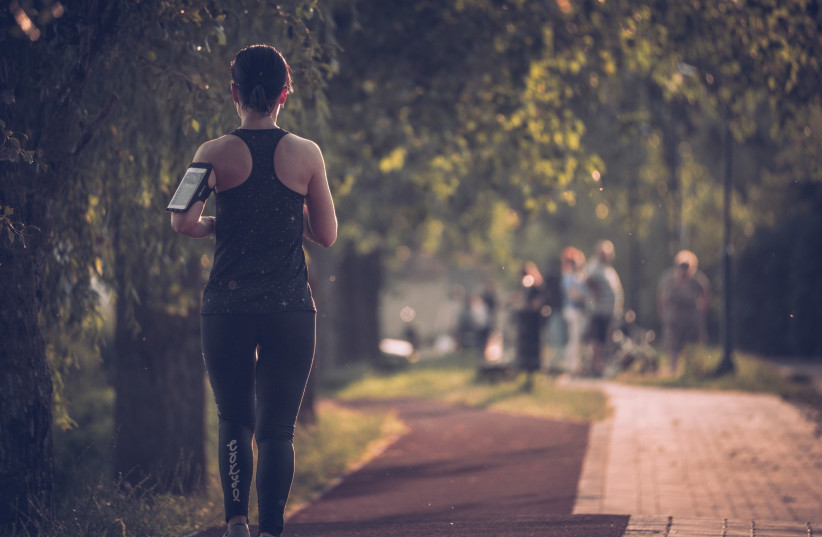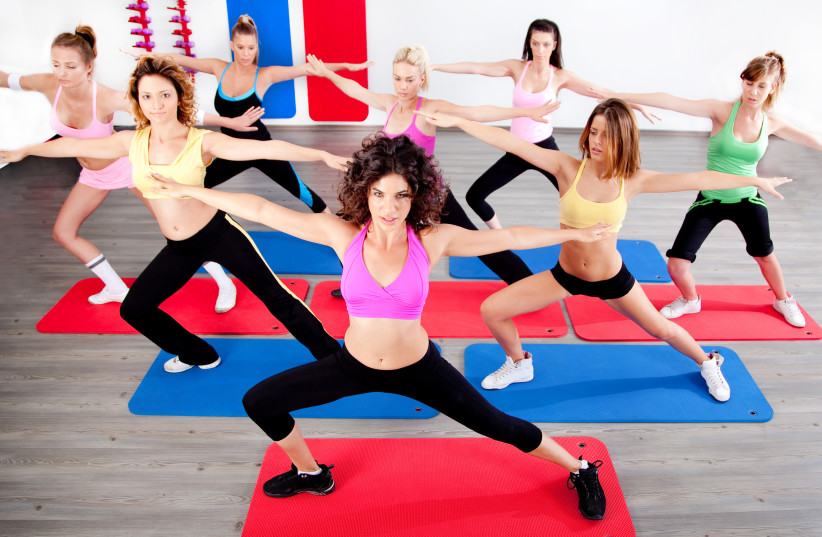Why do many people start running when they reach the age of 40?

Fitness trainer Omer Rosenberg noticed that when people turn 40, they suddenly get a desire to get in shape or start running. Why does this happen?
If the midlife crisis of age 40 was once characterized by a sports car, the cliche today has turned into everyone who turns 40 feeling the need to sign up for a marathon and prove to themselves that they can do it.
And it's not just running – there are more and more men and women in their 40s who come to my studio with a clear goal: To get in shape.
So why is this happening? And why precisely at this age?
The first answer I came up with after speaking with trainees is that the concept of "recalculating route" is relevant for the inner journey that many of us go through – and it reaches its own peak around the age of 40. The energy we invested in our 30s, which tended to mostly focus on building a career and raising a family, gives way to new paths. We're in our middle ages, more or less, and we find ourselves wondering what we accomplished, what we missed out on and what we can still do.
But around the age of 40, we also experience physical phenomena we were never exposed to before. These include hormonal changes, metabolic rate changes, old and new pains reminding us that we're not as young as we used to be. And with all those comes the anxiety over the tendency to develop diseases, many of which are linked to living a sedentary lifestyle, lack of physical activity and unhealthy eating habits.
"Around the age of 40, a change occurs in a person's life"
"The term 'midlife crisis' was first introduced by Canadian psychoanalyst Jacques Elliott in 1965," explained expert clinical psychologist Chen Holtzman. "It describes a change in one's life, usually at the start of the fifth decade, when men and women start reevaluating most of the essential issues in their lives, such as their hopes and dreams, relationships, identity and self-realization."
He added that "Around the age of 40, a change occurs in a person's life. Four decades are already behind him. He's not as young as he used to be, but he isn't old either. He's middle-aged. He now often stops to examine what happened up until now and what he plans to do for the second half of his life. What did he achieve, what can still be achieved and which dreams should be left forgotten? Women in their 40s are also often freed from their traditional roles of raising children and now become busier. This is a time when men and women reevaluate the choices they made in their lives and look for change.
"This may be a period of crisis, but it can also be a chance for growth and change. In the end, the passage of time reminds us that our time here is limited. Death becomes an actual and personal event in the future. The body isn't a well-oiled machine anymore. Our parents' generation is aging and thus our encounter with our own finitude becomes inevitable," Hotlzman continued.
"In some cases, this encounter with death will lead to developing symptoms of depression and anxiety or taking extreme steps to fulfill past dreams to avoid it. But on the other hand, this period is also filled with potential. Focusing on oneself, recognizing the partiality of life, acceptance of the passage of time and the ability to say goodbye to grandiose dreams and turn them into achievable wishes – all of these can bring about substantial and positive changes in a person's life. This is the time when people are free to look for new beneficial and meaningful experiences."
"When I run, I feel like I'm victorious over myself"
When we talk about significant, positive and meaningful changes, sports play an important role and the answer usually can be right in front of our eyes when we go to the park or gym. Many choose a method that will help them ground themselves and make them feel better. One of the most common choices among those experiencing a midlife crisis is to use running as a means to ground themselves, their bodies and health.
This is a universal phenomenon and a common trend everywhere – and unlike the many passing trends in the world of fitness, running is here to stay.
Elad, an engineer who started with light running at the age of 40 and now runs marathons, says that "The reason I chose running is that every time I run, I bring myself to a place I've never been before. I feel like I'm victorious over myself and it gives me satisfaction every time."
And why running over other types of fitness? First off, running isn't complicated. It's possible for everyone and it doesn't involve any complex actions or any coordinated sequence of movements. Rather, running is a very simple action that we know from childhood.
It's also one of the most economically accessible sports, is possible for everyone and aside from a pair of shoes, you don't really need anything.
Of course, this doesn't contradict the fact that this industry spends billions on different gadgets like heart rate monitors and running clothes, but those who want to run can still keep it easy and simple.
Running is also very effective. The World Health Organization (WHO) recommends 150 minutes per week of aerobic activity and recent studies indicate a direct link between walking/running 10,000 steps a day and longevity, preventing and dealing with heart disease, diabetes, stress and obesity. In fact, it also has a positive effect on every physical parameter that was examined.
The great feeling you get after running is difficult to explain in words, but extensive tests conducted on it have shown that running is an excellent solution for those looking to improve their mental health.
But running isn't the only option. You can also choose things like yoga or online training.
Hadas, an elementary school teacher and mother of four, celebrated her 30th birthday about two years ago and works out with different workouts four times a week.
"My priorities have changed. I don't remember feeling anything like this for 20 years, and it's a very addictive feeling," she explained.
"In recent years, I felt everything became too much for me. Even raising my daughter became an endeavor. It was important for me to be able to feel strong again, to feel like I could do things on my own. I don't understand how I let this take over me until today."
So we will see more people looking for a change, looking for a moment to love what they're doing – even if that moment comes only at the end of running.
Omer Rosenberg is a fitness trainer and the owner of the Next fitness club
Jerusalem Post Store
`; document.getElementById("linkPremium").innerHTML = cont; var divWithLink = document.getElementById("premium-link"); if (divWithLink !== null && divWithLink !== 'undefined') { divWithLink.style.border = "solid 1px #cb0f3e"; divWithLink.style.textAlign = "center"; divWithLink.style.marginBottom = "15px"; divWithLink.style.marginTop = "15px"; divWithLink.style.width = "100%"; divWithLink.style.backgroundColor = "#122952"; divWithLink.style.color = "#ffffff"; divWithLink.style.lineHeight = "1.5"; } } (function (v, i) { });


